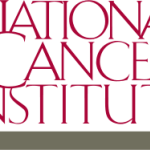- المجال: Government; Health care
- Number of terms: 6957
- Number of blossaries: 0
- Company Profile:
The National Cancer Institute (NCI) is part of the National Institutes of Health (NIH), which is one of 11 agencies that compose the Department of Health and Human Services (HHS). The NCI, established under the National Cancer Institute Act of 1937, is the Federal Government's principal agency for ...
A synthetic small molecule and peptidomimetic of second mitochondrial-derived activator of caspases (SMAC) and inhibitor of IAP (Inhibitor of Apoptosis Protein) family proteins, with potential antineoplastic activity. As a SMAC mimetic and IAP antagonist, TL32711 binds to and inhibits the activity of IAPs, such as X chromosome-linked IAP (XIAP) and cellular IAPs 1 and 2. Since IAPs shield cancer cells from the apoptosis process, this agent may restore and promote the induction of apoptosis through apoptotic signaling pathways in cancer cells. IAPs are overexpressed by many cancer cell types and suppress apoptosis by binding and inhibiting active caspases-3, -7 and -9 via their baculoviral lAP repeat (BIR) domains.
Industry:Pharmaceutical
A synthetic small molecule Aurora kinase (AK) inhibitor with potential antineoplastic activity. Aurora kinase inhibitor SNS-314 selectively binds to and inhibits AKs A and B, which may result in the inhibition of cellular division and proliferation in tumor cells that overexpress AKs. AKs are serine-threonine kinases that play essential roles in mitotic checkpoint control during mitosis.
Industry:Pharmaceutical
A synthetic small molecule inhibitor of checkpoint kinases (Chks) with potential chemosensitizing activity. AZD7762 binds to and inhibits Chks, which may prevent cell cycle arrest and subsequent nucleotide excision repair in DNA-damaged tumor cells, resulting in tumor cell apoptosis. This agent may enhance the cytotoxicity of DNA-damaging agents. Chks are protein kinases that regulate either G1/S or G2/M transitions in the cell cycle. In the presence of DNA damage or incomplete DNA replication, Chks become activated and initiate cell cycle arrest to allow DNA repair or the completion of DNA replication.
Industry:Pharmaceutical
A synthetic small molecule with antimitotic and potential antineoplastic activities. Indibulin binds to a site on tubulin that is different from taxane- or Vinca alkaloid-binding sites, destabilizing tubulin polymerization and inducing tumor cell cycle arrest and apoptosis. This agent has been shown to be active against multidrug-resistant (MDR) and taxane- resistant tumor cell lines.
Industry:Pharmaceutical
A synthetic small molecule with potential antineoplastic activity. MK0731 selectively inhibits kinesin spindle protein (KSP), which may result in the inhibition of mitotic spindle assembly, induction of cell cycle arrest during the mitotic phase, and apoptosis in tumor cells that overexpress KSP.
Industry:Pharmaceutical
A synthetic small molecule with potential antineoplastic activity. MK0752 inhibits the Notch signaling pathway, which may result in induction of growth arrest and apoptosis in tumor cells in which the Notch signaling pathway is overactivated. The Notch signaling pathway plays an important role in cell-fate determination, cell survival, and cell proliferation.
Industry:Pharmaceutical
A synthetic small molecule with potential antineoplastic properties. SB-743921 selectively inhibits kinesin spindle protein (KSP), an important protein involved in the early stages of mitosis that is expressed in proliferating cells. Inhibition of KSP results in inhibition of mitotic spindle assembly and interrupts cell division, thereby causing cell cycle arrest and induction of apoptosis.
Industry:Pharmaceutical
A synthetic small molecule with radiosensitizing activity. Efaproxiral increases oxygen levels in hypoxic tumor tissues by binding non-covalently to the hemoglobin tetramer and decreasing hemoglobin-oxygen binding affinity. Increasing tumor oxygenation reduces tumor radioresistance.
Industry:Pharmaceutical
A synthetic small molecule, derived from quinazolinone, with antineoplastic properties. Ispinesib selectively inhibits the mitotic motor protein, kinesin spindle protein (KSP), resulting in inhibition of mitotic spindle assembly, induction of cell cycle arrest during the mitotic phase, and cell death in tumor cells that are actively dividing. Because KSP is not involved in nonmitotic processes, such as neuronal transport, ispinesib may be less likely to cause the peripheral neuropathy often associated with the tubulin-targeting agents.
Industry:Pharmaceutical
A synthetic small-molecule inhibitor of checkpoint kinases 1 and 2 (Chk1 and Chk2) with potential antineoplastic activity. XL844 binds to and inhibits Chks 1 and 2, resulting in inhibition of cell cycle arrest, progressive DNA damage, inhibition of DNA repair, and, ultimately, tumor cell apoptosis. This agent also inhibits vascular endothelial growth factor receptor 1 (VEGFR1) and vascular endothelial growth factor receptor 3 (VEGFR3), important mediators of tumor angiogenesis and lymphogenesis, respectively. In the presence of DNA damage or incomplete DNA replication, eukaryotic cells activate cell cycle checkpoints that temporarily halt the cell cycle to permit DNA repair or completion of DNA replication to take place. In the presence of extensive damage or absence of timely repair, these checkpoint-signaling pathways may also trigger a pathway that effects apoptosis. Normal functions of Chks involve the initiation of cell-cycle arrest and the up-regulation of transcription genes involved with DNA excision repair and dNTP synthesis.
Industry:Pharmaceutical
